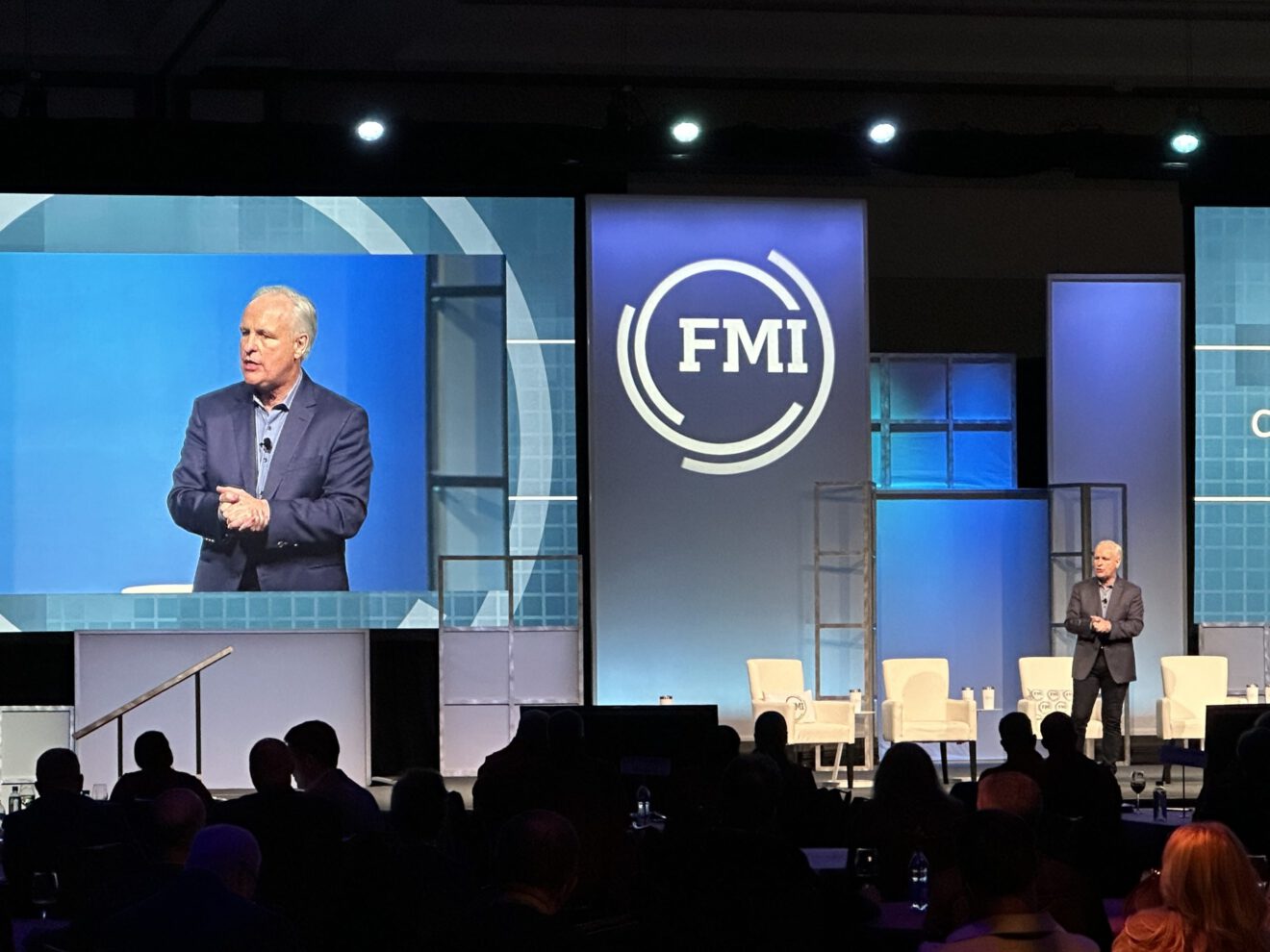Throughout FMI – The Food Industry Association’s Midwinter Executive Conference in Orlando, Fla., earlier this month, retailers and executives across the food industry had the opportunity to attend educational sessions covering grocery technology, food sustainability, government regulations, consumer behavior and more. Though the topics varied, one common theme ran through them all: togetherness and the successes that have and will result from an industry united.
That theme was perhaps highlighted the greatest during a keynote speech presented by Southeastern Grocers President and CEO Anthony Hucker, who shared how his company’s people-first approach to every issue helped it accomplish, “a powerful cultural transformation that is boldly visible in black on the balance sheet.” It is that people-centric mindset, Hucker explained, that has made the grocery industry resilient and will enable it to withstand what could be another difficult year of workforce challenges, supply chain issues and inflation as well as a possible recession for an industry that has already been under strain.
“I think it’s important to consider how the last few years have affected the words being used to describe our industry today. The words we use to describe what we do, how we do it and most importantly why we do it hold the greatest importance,” Hucker said. “I’d like to focus on one word in particular: resilience. I think it’s fair to say that we are a resilient industry. Frankly, we have to be. Our associates count on us. Our customers count on us. Our communities count on us, too. The definition of resilience is the ability to recover from or adjust easily to misfortune or change. As an industry, as a nation, globally the past few years have represented great misfortune and change. And if we didn’t already know, we certainly know now that adversity does not discriminate.”
Hucker went on to point out specific challenges for the Florida-based Southeastern Grocers – the devastating effects of Hurricanes Michael and Ian – as well as the unprecedented industry-wide challenges grocery retailers and their customers have faced since the start of the coronavirus pandemic.
“[Our customers] are counting us on value to stretch their dollars, convenience to simplify their schedules and products that meet at the intersection of quality, nutrition and affordability and sustainability,” Hucker said.
In addition, grocers must address continued labor shortages as well as increasing environmental, social and governance demands as sustainability issues are exacerbating problems in an already strained supply chain.
“I believe as leaders in our industry, one of our most important tasks is to make the complex simple. But simple does not mean easy. In fact, simplifying the complex is one of the most challenging things that we do,” Hucker said. “We have many complex challenges in front of us so we have to simplify those to a common solution.”
That common solution, Hucker explained, is focusing on the people within the industry.
“People are at the center of every answer to every question you face,” Hucker said. “The concept of having a people-first culture is not necessarily unique. Many claim to put their people first, but let’s face it, they do not. To be transparent, for a long time, neither did we. Through an extended period of our history in which we were fighting for survival, the urgency of the balance sheet inevitably took precedence over culture.”
However, over the last five years, SEG transformed and created a people-first culture – chiefly by listening to and addressing employees’ issues and concerns – and has boosted employees’ trust in leadership by 30%.
“Now, five years into our transformation, we’ve learned to focus on our people first and we’ve accomplished a powerful cultural transformation that is boldly visible in black on the balance sheet,” Hucker said. “Before we’re competitors, before we’re retailers, we’re human beings. We’re people, and we’re stronger together. Together, we’ve weathered the storms, we’ve prospered through a pandemic, we’ve nourished a nation in need through the toughest of times.”
Hucker closed his speech with a three-pronged challenge for his colleagues.
“No. 1, let’s continue to be resilient together. No. 2, let’s care for our communities together. And No. 3, let’s shape the future of this industry together.”
Read more like this from SmartBrief:
- Upcycled food helps brands, consumers combat waste
- 6 startups transforming the grocery technology industry
- Datassential forecasts 2023 macro trends for the food industry
